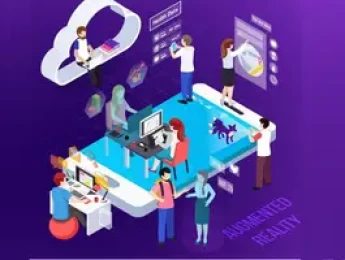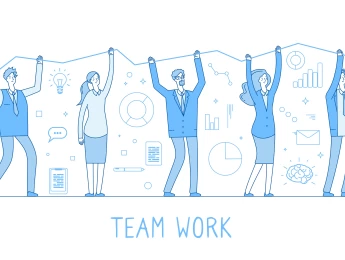Disagreements can quickly escalate in any situation, whether inside or outside work. For this reason, you should always enter situations with an open mind and utilise emotional intelligence to achieve the most positive outcome for everyone. In a professional environment, when things go wrong, it creates a negative working environment for everyone. It kills motivation and teamwork but can also ruin external relationships with partners and stakeholders, damaging the business.
Handling conflict easily is a great skill, especially if you’re responsible for managing people or business relationships. To become a skilful manager and problem solver and avoid conflict, you will need to develop skills to identify potential conflicts before they happen, remain impartial, and fully control your emotions to remain professional and obtain the best possible outcome.
Upon completion of this course, participants will be able to:
- Understand the effect of emotional intelligence within work and personal relationships.
- Fully understand the meaning of emotional intelligence and how to apply it to the best of your abilities.
- Improve your leadership and relationship skills to promote clearer goals and visions.
- Clearly apply proper theories and practices in the act of conflict.
- Effectively apply the required skills during a difficult conversation.
- Properly handle a serious negotiation.
- Develop natural communication skills to create mutually beneficial working relationships.
This course is designed for anyone in a leadership role who aims to better their communication and negotiation skills. It would be most beneficial for:
- Operations Managers
- Business Owners
- Managing Directors
- Strategic Planners
- Data Analysts
- Staff Councillors
- Arbitrators
- Legal Representatives
- HR Professionals
- Marketing Managers
- Account Managers
This course uses various proven adult learning methods to aid maximum understanding. It provides interactive group activities using tools and questionnaires alongside popular studies to encourage participants to learn more about their traits and apply techniques to improve their management and overall working style while developing beneficial and long-lasting working relationships.
The participants will better understand how to control their emotions in an inspiring workplace, improve their social skills, and deal with a conflicting environment. They will be encouraged to ask questions and learn to identify potential conflicts before they happen while learning the most professional yet impartial way to deal with any situation.
Day 5 of each course is reserved for a Q&A session, which may occur off-site. For 10-day courses, this also applies to day 10
Section 1: Causes of Work Conflicts
- What is the cause of conflict, and how can it spiral out of control?
- How can central beliefs and opposing opinions cause conflict?
- Techniques and skills for resolving conflict.
- Healthily resolving conflict within a team.
- Understanding the reasoning behind escalating conflicts.
- The art of avoiding conflict.
Section 2: Application & understanding of emotional intelligence
- How emotional intelligence coincides with management psychology.
- What are the main principles of emotional intelligence?
- Major skills in intrapersonal skill development.
- The key to understanding emotional state by non-verbal cues.
- Developing questions in relation to understanding emotions.
- Creating an effective technique to resolve conflict.
Section 3: Using Emotional Intelligence While Leading
- The theory of Management and leadership.
- Realising the importance of communication for emotional engagement.
- How to be an inspiring leader in the workplace.
- Evaluating your emotional intelligence and understanding where to improve.
- How are great leaders so savvy?
- Useful motivational language techniques to inspire co-workers.
Section 4: Strategies for Resolving Conflict
- Healthily separating the people, the problem and the emotions during conflict.
- 4 ideas for resolving problems in the workplace.
- The ability to be emotionally reliable in relationships.
- The key factors to resolving conflicts with emotional intelligence.
- Building conversations to settle.
- Heading into conflict and remaining impartial.
Section 5: Planning for Avoiding Conflict
- Learning the appropriate way to avoid conflict.
- Controlling workplace tension professionally.
- Rules of disagreement and negotiation.
- Healthily maintaining relationships and learning to mend them when they falter.
- Properly dealing with difficult conversations.
- Pre-planning for skill building.
Upon successful completion of this training course, delegates will be awarded a Holistique Training Certificate of Completion. For those who attend and complete the online training course, a Holistique Training e-Certificate will be provided.
Holistique Training Certificates are accredited by the British Assessment Council (BAC) and The CPD Certification Service (CPD), and are certified under ISO 9001, ISO 21001, and ISO 29993 standards.
CPD credits for this course are granted by our Certificates and will be reflected on the Holistique Training Certificate of Completion. In accordance with the standards of The CPD Certification Service, one CPD credit is awarded per hour of course attendance. A maximum of 50 CPD credits can be claimed for any single course we currently offer.
- Course Code MG2-133
- Course Format Classroom, Online,
- Duration 5 days













